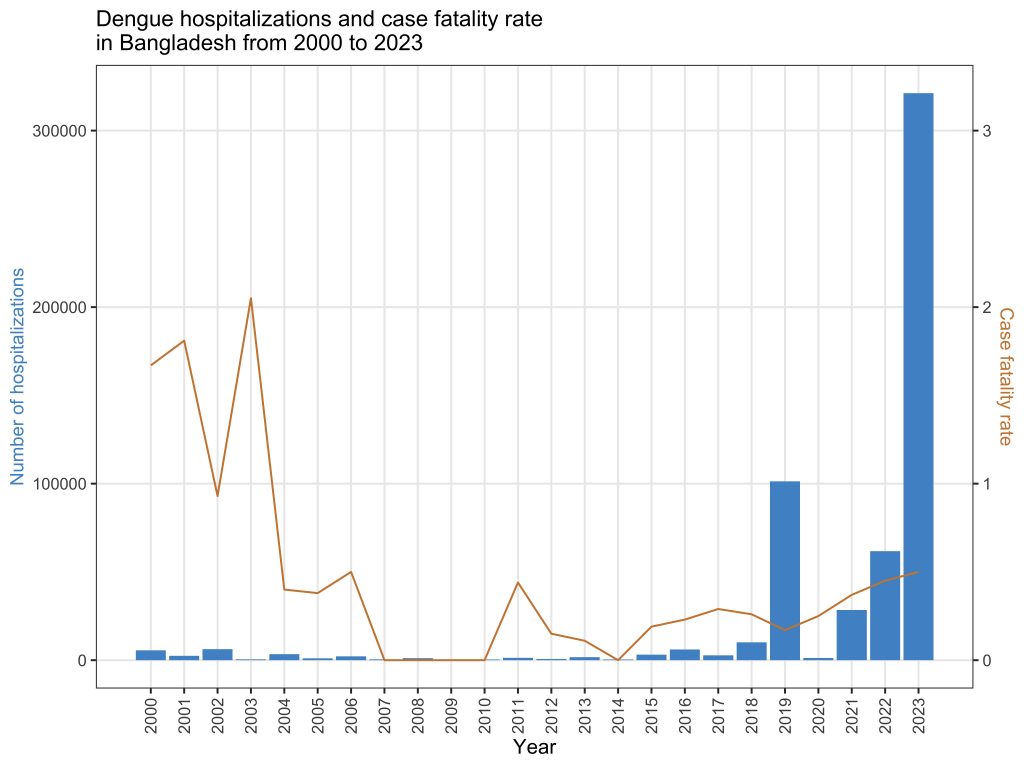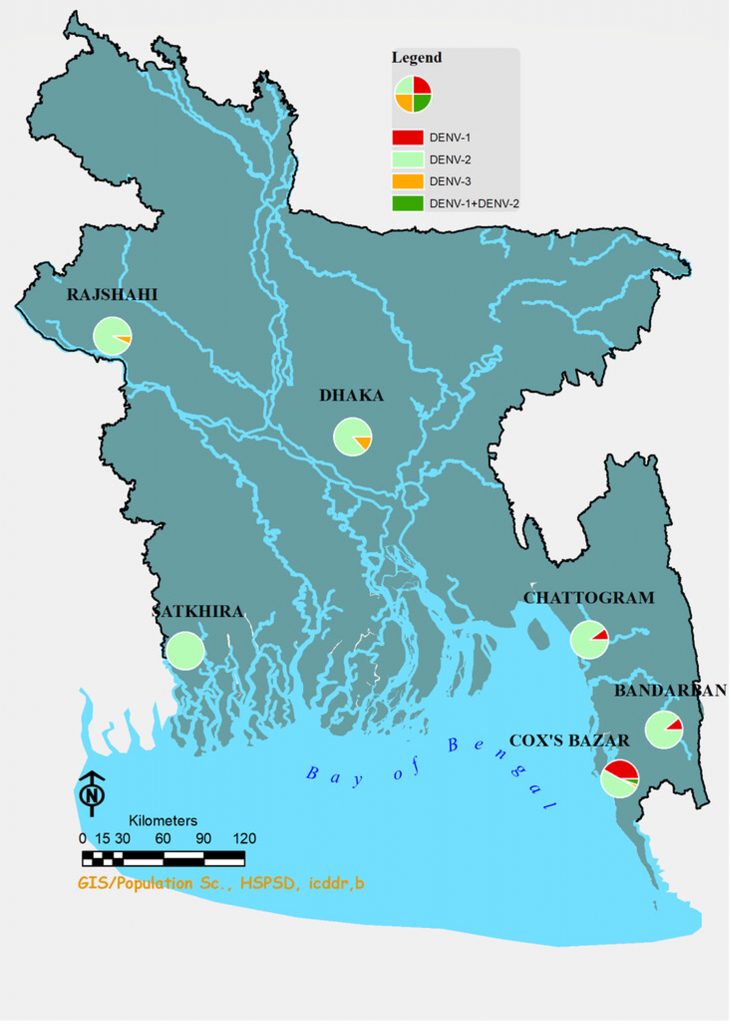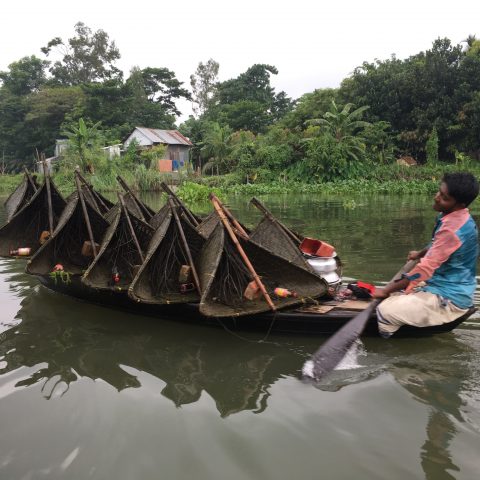Dengue is a viral disease that is endemic in Bangladesh and other tropical and subtropical regions around the world, infecting 100-400 million people every year across more than 120 countries. Dengue is transmitted through daytime bites of infected female Aedes aegypti and Aedes albopictus mosquitoes. Dengue viruses belong to one of four serotypes, named DENV1 through DENV4. More than 80% of cases resolve with no or mild symptoms and infection by a serotype tends to produce long-term immunity against the serotype.
Past infection with one serotype does not lead to protection against the other serotypes. Instead, subsequent infection with a different serotype often leads to more severe clinical outcomes like dengue hemorrhagic fever (DHF), and dengue shock syndrome with symptoms including high fever, muscle and joint pains, and a decrease in white blood cell count.
Dengue virus was first recorded in Bangladesh in 1964 through an outbreak of the DENV3 serotype but remained rare until the first major outbreak in 2000. Since 2000, the number of dengue cases and deaths have increased, with 2,216 cases during 2000-2010 vs. 18,321 cases during 2011-2022 — an eightfold increase during the second period. While the overall mortality or case fatality rate has decreased since the early years — possibly through improved medical care for the disease — the average annual number of deaths more than doubled during 2011-2022 compared to 2000-2010. Moreover, there has been an increasing trend in case fatality rate since 2019 (Figure 1). The rise of dengue in Bangladesh was likely driven by increased local temperature and changes in rainfall seasonality linked to climate change as well as rapid unplanned urbanization.

Figure 1: Data from Hossain et al. 2023 and DGHS dengue press release.
The rising trend observed since 2000 built up to Bangladesh’s deadliest recorded dengue epidemic in 2023, with the number of deaths exceeding the total number of deaths across the previous 23 years (2000-2022: 853 deaths vs 2023: 1705 deaths). A set of recent studies conducted by icddr,b scientists revealed the epidemiology of the 2023 dengue outbreak in Bangladesh.
Between July and December 2023, Hasan et al. conducted a country-wide analysis on samples from patients with clinical symptoms of dengue. A total of 354 patients from five rural subdistricts and four metropolitan cities across five districts were included in the study, with 197 of the patients testing positive for dengue infections. The 197 identified dengue infections served as a representative sampling of dengue cases during the 2023 dengue outbreak (Figure 2).

Figure 2: Figure from Hasan et al. 2024 showing sampling locations across Bangladesh and dengue serotype distributions in the locations.
Among the sampled dengue cases, DENV2 serotype appeared as the predominant serotype (74.1%), following by DENV1 (19.8%) and DENV3 (6.1%). This is in contrast to the 2019 outbreak — the largest outbreak before 2023 — when DENV3 was the dominant serotype. The DENV3 serotype appears to have been replaced by the DENV2 serotype. Two other studies reiterated these findings. A study conducted in 2023 in Rajshahi district found that 93.3% of a sample of 30 dengue-positive patients were infected with DENV2 and 6.7 % of the patient were infection with DENV3. A larger study in Chittagong on 711 dengue-positive patients again found DENV2 to be the most prevalent (67.9%) followed by DENV3 (20.3%) and DENV1 (11.8%). The spatial sampling conducted in the study also helped identify five urban hotspots of dengue infection, which could help prioritize future vector control efforts.
The replacement of DENV3 by DENV2 may be linked to the increased case fatality leading up to and during 2023, as secondary infection with a different serotype frequently leads to more severe clinical manifestations possibly through a mechanism called antibody-dependent enhancement. In antibody-dependent enhancement, an antibody to a primary serotype is unable to neutralize a secondary serotype and instead allows the virus carrying the secondary serotype to more easily infect host cells. The 2019 outbreak showed a similar pattern, with a record — at the time — number of cases occurring when DENV3 replaced DENV2 as the primary serotype.
The rapid rise in dengue cases and deaths in Bangladesh in recent years is highly concerning and may presage larger epidemics or even pandemics as climate change will likely expand the range of dengue’s mosquito vectors. An effective vaccine that works against all dengue serotypes is urgently needed to prevent and counter similarly large and deadly outbreaks in Bangladesh and around the world.
Any interpretation of the findings of the studies described do not necessarily represent the opinions of the authors of the studies.

